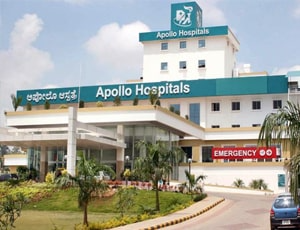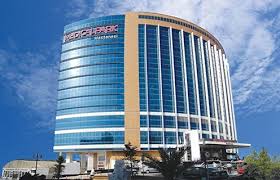General Surgery
Perianal Abscess
Perianal Abscess
Perianal abscess is a painful infection near the anus causing swelling and pus accumulation. Timely surgical drainage is essential to relieve pain and prevent complications like fistulas.
Perianal abscess treatment India
A perianal abscess is a painful collection of pus next to the anus, usually due to infection of one of the small glands within the anal canal. If left untreated, it may result in fistula or systemic infection.
Treatment Options:
Conservative Treatment (select cases)
- Warm Sitz baths: 10–15 minutes several times a day to ease discomfort
- Pain relief: NSAIDs or paracetamol
- Antibiotics: Only with the presence of cellulitis, diabetes, immunocompromised status, or extensive infection
Surgical Treatment (Gold Standard)
The definitive care is incision and drainage (I&D):
Procedure:
- Typically performed under local, regional, or general anesthesia based on abscess size
- Surgeon incises a small one over the most prominent part of the abscess
- Drainage of the pus is complete
- Wound left open to close by second intention
- Occasionally a small pack placed for prevention of premature closure
Post-operative care:
- Sitz baths several times a day
- Pain management
- Dressing changes as indicated
- High-fiber diet to prevent constipation
Complications to monitor:
- Recurrence of abscess
- Fistula-in-ano development (~30–50% risk if the abscess was deep)
- Spreading infection
Advanced/Alternative Strategies
- Percutaneous drainage: Resorted to in deep pelvic or complicated abscesses under imaging guidance
- Fistulotomy or seton placement: If a fistula is identified
Factors Affecting Perianal abscess surgery cost India
The price of perianal abscess surgery in India depends largely on many factors. Below is a summary of the most important factors that affect the price:
Type of Procedure
- Simple Incision & Drainage (I&D): Usually less costly, for uncomplicated abscesses.
- Complex or Recurrent Abscesses: May involve complex procedures such as fistulotomy or Seton placement, elevating prices.
Hospital Type & Location
- Private Hospitals: Provide facilities such as private rooms, state-of-the-art equipment, and specialized services, resulting in more expensive prices.
Surgeon's Experience
- Seasoned colorectal surgeons can be more expensive, but tend to yield improved results and faster recovery.
Anaesthesia and Operation Theatre Fees
- The extent of surgery and the form of anaesthesia can determine overall charges.
Diagnosis Tests
- Pre-operative evaluations like blood tests, imaging (such as ultrasound or MRI), and consultations may contribute to the cost.
Post-Operative Treatment
- Medications, follow-up appointments, and possible complications needing further treatment can drive costs higher.
Best hospital for perianal abscess India
- Artemis Hospital, Gurgaon
- Medanta-The Medicity, Gurgaon
- Fortis Memorial Research Institute, Gurgaon
- Max Hospital, Saket
Perianal abscess drainage procedure India
For the drainage of pus from the abscess, pain relief, and avoidance of complications such as fistulae or systemic infection.
Preparation
Medical Evaluation
- Physical examination of the abscess
- Blood work to screen for infection
- Imaging (MRI or ultrasound) if the abscess is complicated or deep
Pre-Operative Instructions
- Fasting for 6–8 hours in case general anaesthesia is indicated
- Discontinue some medications (blood thinners) if instructed
- Clean the anal area
Procedure Steps
Anaesthesia
- Local anaesthesia: For small and superficial abscesses
- Regional (spinal/epidural) or general anaesthesia: Large or deep abscesses
Positioning
- Patient will typically be positioned in prone (stomach position) or lithotomy (legs in the air) position to expose the abscess
Incision
- The surgeon creates a small incision at the most bulging spot of the abscess
- Anal sphincter muscles are avoided to prevent injury
Drainage
- Pus is permitted to drain freely
- The cavity can be irrigated with saline
Packing
- In some cases, a small gauze pack is inserted to close prematurely and permit continued drainage
- Pack is removed after 24–48 hours in most cases
Closure
- The majority of perianal abscesses are left to heal naturally (secondary intention)
- An occasional small suture is used for extremely superficial abscesses
Post-Procedure Care
- Pain Relief: Paracetamol or NSAIDs
- Sitz Baths: Warm water for 10–15 minutes, 3–4 times a day
- Hygiene: Keep the area clean and dry
- Diet: Increased fiber diet and adequate fluids to prevent constipation
- Follow-Up: Inspection for healing, recurrence, or fistula formation
Laser treatment for perianal abscess India
Laser treatment (also referred to as Laser Abscess Drainage or Laser Fistula Treatment) employs a radial fiber laser probe to drain the abscess and sterilize the infected tissue.
It is intended to:
- Drain pus effectively
- Minimize tissue damage
- Decrease postoperative pain and recurrence
Procedure Steps
Pre-Operative Preparation
- Diagnosis by proctologist or colorectal surgeon confirmed by clinical exam and imaging (ultrasound or MRI).
- Blood work and anaesthesia assessment are done.
Anaesthesia
- Generally done under local, spinal, or brief general anesthesia based on abscess location and size.
Laser Drainage Technique
- A minimal 1–1.5 cm incision is created close to the abscess location.
- The pus is evacuated entirely.
- A laser probe (radial fiber) is advanced into the cavity of the abscess.
- The laser energy destructs infected tissue and sterilizes the walls of the abscess, minimizing bacterial load.
- This collapses and closes the cavity without harming healthy tissue.
Closure
- The wound is left open for spontaneous drainage.
- Less dressing compared to conventional surgery is needed.
Perianal abscess recovery time India
Immediate Post-Surgery (Days 1–3):
- Pain and swelling begin to decrease slowly.
- Some bleeding or pus drainage is to be expected.
- You might need pain medication and antibiotics.
- Sitz baths (warm water soaks) ease discomfort and enhance drainage.
Early Healing (Days 4–10):
- Wound begins closing inward from the outside.
- Dressing change or wound cleaning might be necessary each day.
- Pain reduces sharply by day 5–7.
- You can return to most light activities.
Complete Healing (2–4 Weeks):
- Skin completely regenerates over wound area.
- Drainage ceases entirely.
- Mild soreness or itching can last until new tissue develops.
- Normal bowel habits return without discomfort.
Causes of perianal abscess India
Blocked Anal Glands (Most Frequently Involved Cause)
- Small glands within the anus assist with lubricating the passage of stools.
- When these glands get clogged or infected, bacteria grow, causing pus to build up and forming an abscess.
- This is a cryptoglandular infection, which accounts for 80–90% of infections.
Bacterial Infection
Typical bacteria involved are:
- Escherichia coli (E. coli)
- Staphylococcus aureus
- Streptococcus species
- Bacteroides fragilis (anaerobic bacteria)
These bacteria infect through:
- Small cuts or fissures in the skin near the anus
- Blocked ducts or sweat glands
Anal Fissures or Trauma
- Tiny tears (fissures) in the anal lining can permit bacteria to penetrate deeper tissues and infect them.
- Local trauma (e.g., due to hard stool or instrumentation) can also initiate abscess formation.
Inflammatory Bowel Diseases (IBD)
- Crohn's disease is a significant risk factor because of chronic inflammation and ulceration of the intestinal mucosa.
- Recurring perianal abscesses are typical in Crohn's patients.
Sexually Transmitted Infections (STIs)
- Some infections (e.g., HIV, gonorrhea, chlamydia) may weaken local immunity or directly infect in the area around the anal canal.
Immunocompromised States
Those who have compromised immune systems are at greater risk for infection:
- Diabetes mellitus
- Chemotherapy or cancer
- Chronic use of steroids
- HIV/AIDS
Post-Surgical or Post-Injection Infections
- Infection may occur at the site of past anal or rectal surgery.
- Seldom, following injections received in the gluteal area.
Other Uncommon Causes
- Tuberculosis (TB): Anal tuberculosis can rarely lead to abscess formation.
- Foreign body in the anal canal or rectum.
- Pilonidal sinus infection that tracks towards the anal region.
Conclusion
A perianal abscess is a painful and curable condition resulting from infection of the anal glands or perianal tissue. Early diagnosis and surgical drainage—either by conventional incision or newer laser treatment—are necessary to avoid complications like recurrence or fistula formation. Most patients recover completely within a few weeks with proper post-operative care, hygiene, and follow-up. Prompt early medical treatment and keeping the anal area healthy can also decrease the chances of recurrence and facilitate quicker healing.
Perianal abscess treatment India with GetWellGo
GetWellGo is regarded as a leading supplier of healthcare services. We help our foreign clients choose the best treatment locations that suit their needs both financially and medically.
We offer:
- Complete transparency
- Fair costs.
- 24 hour availability.
- Medical E-visas
- Online consultation from recognized Indian experts.
- Assistance in selecting India's top hospitals for Perianal abscess treatment.
- Expert surgeon with a strong track record of success
- Assistance during and after the course of treatment.
- Language Support
- Travel and Accommodation Services
- Case manager assigned to every patient to provide seamless support in and out of the hospital like appointment booking
- Local SIM Cards
- Currency Exchange
- Arranging Patient’s local food
FAQ
Can a perianal abscess resolve spontaneously?
- No. A perianal abscess will not heal without drainage. Antibiotics are only rarely enough, since the pus must be drained surgically or minimally invasively in order for healing to take place.
How likely is recurrence?
- Recurrence will happen in as many as 30–50% of cases if the underlying infection or fistula is left untreated. Good follow-up and hygiene prevent it.
Is surgery for perianal abscess painful?
- The operation is performed with local or general anaesthesia, so the patients do not experience pain during the procedure. Slight soreness or discomfort after the operation is normal but can be eased with medication.
Can a perianal abscess come back even after surgery?
- Yes, particularly if there is a fistula or Crohn's disease underlying. Follow-up and imaging done routinely can identify recurrence early for treatment.
TREATMENT-RELATED QUESTIONS
GetWellGo will provide you end-to-end guidance and assistance and that will include finding relevant and the best doctors for you in India.
A relationship manager from GetWellGo will be assigned to you who will prepare your case, share with multiple doctors and hospitals and get back to you with a treatment plan, cost of treatment and other useful information. The relationship manager will take care of all details related to your visit and successful return & recovery.
Yes, if you wish GetWellGo can assist you in getting your appointments fixed with multiple doctors and hospitals, which will assist you in getting the second opinion and will help you in cost comparison as well.
Yes, our professional medical team will help you in getting the estimated cost for the treatment. The cost as you may be aware depends on the medical condition, the choice of treatment, the type of room opted for etc. All your medical history and essential treatment details would be analyzed by the team of experts in the hospitals. They will also provide you with the various types of rooms/accommodation packages available and you have to make the selection. Charges are likely to vary by the type of room you take.
You have to check with your health insurance provider for the details.
The price that you get from GetWellGo is directly from the hospital, it is also discounted and lowest possible in most cases. We help you in getting the best price possible.
No, we don't charge patients for any service or convenience fee. All healthcare services GetWellGo provide are free of cost.
Top Doctors for General Surgery
Top Hospitals for General Surgery
Contact Us Now!
Fill the form below to get in touch with our experts.







